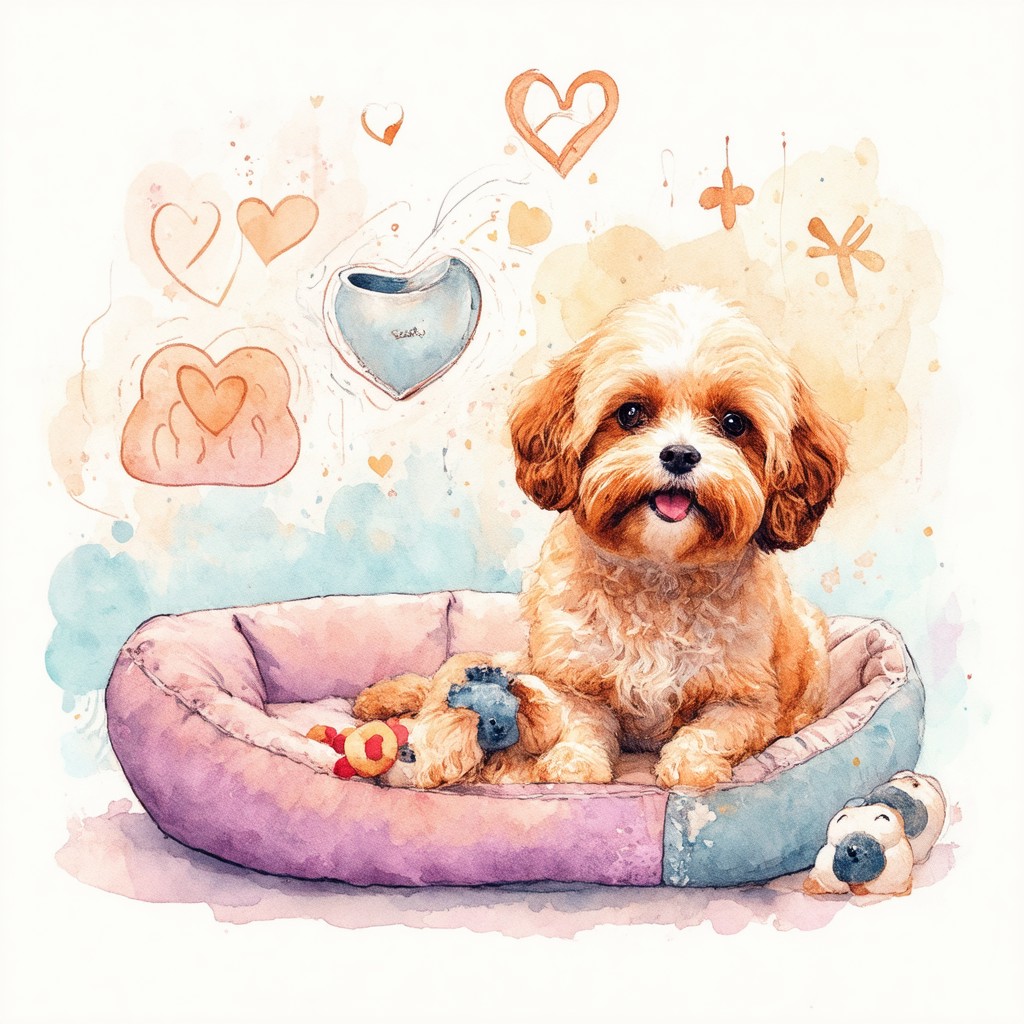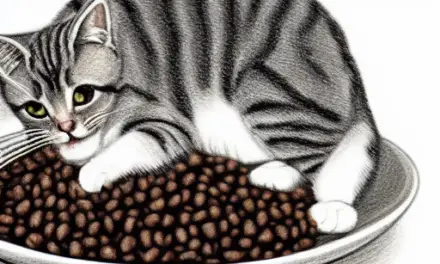Key Takeaways
- Cavapoos are a friendly and affectionate breed, ideal for families and individuals seeking companionship.
- They possess hypoallergenic traits, making them suitable for allergy sufferers with low shedding coats.
- Regular grooming is essential to maintain their coat and prevent matting, requiring professional grooming every 4-6 weeks.
- Cavapoos can experience separation anxiety and may develop behavioral issues if left alone for long periods.
- Training and socialization from an early age are crucial to manage potential stubbornness and ensure well-behaved pets.
- Owning a Cavapoo can be costly due to grooming, veterinary care, and potential health issues inherited from parent breeds.
- Consider adopting from rescues or shelters to provide a loving home to a Cavapoo in need while saving on initial costs.
- Understanding their size variations (toy, mini, standard) is important for ensuring a good fit in your living environment.
Welcome to our comprehensive guide on the cavapoo dog, a delightful blend of the Cavalier King Charles Spaniel and the Poodle. In this article, we will explore the many facets of owning a cavapoo, from understanding their unique traits to essential care tips for potential owners. Whether you’re curious about the hypoallergenic traits of this breed or wondering about the behavior and temperament of cavapoos, we’ve got you covered. We will also address common concerns such as the maintenance needs of these charming dogs and their communication styles. Additionally, we will discuss practical aspects like pricing and where to find cavapoos for sale, as well as insights into their size and growth. By the end of this article, you will have a well-rounded understanding of what it means to welcome a cavapoo into your home, including the pros and cons of ownership. Join us as we delve into the world of cavapoo dogs and help you make an informed decision about this lovable breed.
Understanding the Cavapoo Dog
What is the downside of a Cavapoo?
While Cavapoos are beloved for their friendly nature and hypoallergenic coats, potential downsides should be considered:
1. **Health Issues**: Both parent breeds, the Cavalier King Charles Spaniel and the Poodle, are susceptible to various health problems. Common concerns include:
– **Eye Problems**: Cavapoos may inherit eye conditions such as cherry eye, dry eye, cataracts, and progressive retinal atrophy. Regular veterinary check-ups are essential to monitor eye health (American Kennel Club).
– **Heart Conditions**: Cavaliers are prone to mitral valve disease, which can lead to heart failure. This genetic predisposition can affect Cavapoos as well (Veterinary Cardiology).
– **Hip Dysplasia**: This condition, common in both breeds, can lead to arthritis and mobility issues. Responsible breeding practices can help mitigate this risk (Orthopedic Foundation for Animals).
2. **Grooming Needs**: Cavapoos require regular grooming to maintain their coat. Their curly fur can mat easily, necessitating frequent brushing and professional grooming every 4-6 weeks (PetMD).
3. **Separation Anxiety**: Cavapoos are social dogs that thrive on companionship. They may experience separation anxiety if left alone for extended periods, leading to destructive behaviors (American Kennel Club).
4. **Training Challenges**: While generally intelligent, Cavapoos can inherit stubbornness from their Poodle lineage. Consistent training and socialization from an early age are crucial for well-behaved pets (The Spruce Pets).
5. **Cost of Care**: Owning a Cavapoo can be expensive, considering potential health issues, grooming, and regular veterinary care. Prospective owners should budget accordingly (Petfinder).
In summary, while Cavapoos make excellent companions, potential owners should be aware of the health risks, grooming requirements, and behavioral traits associated with this breed. Regular veterinary care and proper training can help mitigate many of these concerns, ensuring a happy and healthy life for your Cavapoo.
Cavapoo Hypoallergenic Traits
Cavapoos are often touted as hypoallergenic dogs, making them a popular choice for individuals with allergies. This trait primarily stems from their Poodle lineage, as Poodles are known for producing less dander and having hair instead of fur. Here are some key points regarding the hypoallergenic qualities of Cavapoos:
1. **Low Shedding**: Cavapoos typically shed less than many other breeds, which can help reduce allergens in the home. This characteristic makes them suitable for allergy sufferers who may react to pet hair.
2. **Coat Types**: The coat of a Cavapoo can vary, but it often resembles that of a Poodle, being curly or wavy. This type of coat helps trap dander and hair, preventing it from spreading throughout the home.
3. **Regular Grooming**: To maintain their hypoallergenic qualities, regular grooming is essential. Frequent brushing and professional grooming can help manage shedding and keep the coat healthy, further minimizing allergens.
4. **Individual Reactions**: It’s important to note that no dog is completely hypoallergenic. Individual reactions can vary, and potential owners should spend time with a Cavapoo before making a commitment to ensure compatibility with their allergies.
In conclusion, while Cavapoos possess hypoallergenic traits that can benefit allergy sufferers, proper grooming and care are crucial to maintaining these qualities. If you’re considering a Cavapoo, be sure to consult with breeders who prioritize health and coat quality to find the best match for your lifestyle.

Cavapoo Behavior and Temperament
The Cavapoo, a delightful mix of the Cavalier King Charles Spaniel and the Poodle, is often celebrated for its friendly and affectionate nature. This breed is particularly well-suited for family life, making it a popular choice among dog lovers. Let’s explore whether a Cavapoo is a good house dog and some common behavior problems that may arise.
Is a Cavapoo a Good House Dog?
The Cavapoo is often considered an excellent house dog for several reasons:
- Temperament: Cavapoos are known for their friendly and affectionate nature. They thrive on companionship and are great for families, singles, and seniors alike. Their sociable demeanor makes them ideal for households where they can receive plenty of attention.
- Intelligence and Trainability: This breed is highly intelligent, inheriting the Poodle’s sharp mind. They are relatively easy to train, making them suitable for first-time dog owners. Positive reinforcement techniques work best, and they respond well to consistent training routines.
- Size and Adaptability: Cavapoos are small to medium-sized dogs, typically weighing between 12 to 25 pounds. Their size makes them adaptable to various living situations, including apartments and smaller homes. They require moderate exercise, which can be met with daily walks and playtime.
- Low Shedding: Thanks to their Poodle lineage, Cavapoos often have a low-shedding coat, which can be beneficial for allergy sufferers. Regular grooming is necessary to maintain their coat and prevent matting.
- Companionship: Cavapoos are known to form strong bonds with their owners. They often experience separation anxiety if left alone for long periods, making them ideal for individuals who work from home or are home frequently.
- Health Considerations: While generally healthy, Cavapoos can be prone to certain genetic conditions inherited from their parent breeds, such as hip dysplasia and heart issues. Regular veterinary check-ups and a healthy diet are essential for their well-being.
In summary, the Cavapoo is a great house dog due to its friendly temperament, intelligence, adaptability, and low-shedding coat. For those considering adding a Cavapoo to their family, it’s important to provide them with companionship and regular exercise to ensure a happy and healthy life. For more information on dog breeds and their care, resources like the American Kennel Club (AKC) can provide authoritative insights.
Common Cavapoo Behavior Problems
While Cavapoos are generally well-behaved, some common behavior problems can arise, particularly if they are not properly trained or socialized:
- Separation Anxiety: Due to their strong attachment to their owners, Cavapoos may experience separation anxiety when left alone. This can lead to destructive behaviors, such as chewing furniture or excessive barking.
- Excessive Barking: While not known for being yappy, some Cavapoos may bark excessively if they are bored or not adequately exercised. Regular playtime and mental stimulation can help mitigate this behavior.
- Potty Training Issues: Like many small breeds, Cavapoos may have challenges with potty training. Consistent routines and positive reinforcement can aid in successful training.
- Hyperactivity: If not given enough physical and mental stimulation, Cavapoos can become hyperactive. Daily walks, play sessions, and interactive toys can help channel their energy positively.
Understanding these potential behavior problems is crucial for prospective Cavapoo owners. With proper training, socialization, and care, these adorable dogs can thrive in any household. For those looking to adopt a Cavapoo, resources like Petfinder can assist in finding Cavapoos for adoption.
Maintenance and Care for Cavapoos
Caring for a cavapoo dog involves understanding their unique needs to ensure they thrive as happy and healthy companions. While many consider Cavapoos to be low-maintenance due to their friendly nature and adaptability, they do require specific care routines that can vary based on individual dogs. Here’s a closer look at the maintenance and care essentials for Cavapoos.
Is a Cavapoo High Maintenance?
When evaluating whether a cavapoo is high maintenance, it’s essential to consider several factors:
- Grooming Needs: Cavapoos have a coat that is often hypoallergenic, which means they shed less than many other breeds. However, regular grooming is necessary to prevent matting. It’s advisable to brush their coat 2-3 times a week and schedule professional grooming every 6-8 weeks to keep their fur healthy and manageable.
- Training and Socialization: These dogs are intelligent and eager to please, making them relatively easy to train. Early socialization and consistent training using positive reinforcement techniques are crucial for developing their cavapoo temperament and ensuring they grow into well-adjusted adults.
- Exercise Requirements: Despite their small size, Cavapoos need daily exercise to stay healthy. A minimum of 30 minutes of physical activity, such as walks or playtime, is recommended. Engaging them in interactive games can also provide necessary mental stimulation.
- Health Monitoring: Regular veterinary check-ups are vital for monitoring common health issues associated with the breed, such as hip dysplasia and eye conditions. Maintaining a healthy diet is also essential for their overall well-being.
- Living Environment: Cavapoos adapt well to various living situations, including apartments. However, they thrive on companionship and should not be left alone for extended periods.
In summary, while Cavapoos are generally considered low-maintenance, they do require consistent grooming, training, exercise, and health monitoring. Understanding these needs will help ensure your cavapoo dog leads a happy and fulfilling life.
Cavapoo Diet and Nutrition Tips
Feeding your cavapoo a balanced diet is crucial for their health and longevity. Here are some essential tips for maintaining a proper cavapoo diet:
- Quality Dog Food: Choose high-quality dog food that meets the nutritional needs of small breeds. Look for options that list meat as the first ingredient and avoid fillers like corn and soy.
- Portion Control: Due to their small size, Cavapoos can easily become overweight. Follow the feeding guidelines on the dog food packaging and adjust portions based on your dog’s activity level and age.
- Regular Feeding Schedule: Establish a consistent feeding schedule, typically two meals a day for adult Cavapoos. This helps regulate their digestion and maintain a healthy weight.
- Healthy Treats: Use treats sparingly and opt for healthy options. Fresh fruits and vegetables can be great alternatives to commercial treats, but always check for safe options.
- Hydration: Ensure your Cavapoo has access to fresh water at all times. Proper hydration is essential for their overall health.
By focusing on a balanced diet and proper nutrition, you can help your cavapoo dog maintain a healthy weight and enjoy a vibrant life.
Barking and Communication
Cavapoos, a popular hybrid breed resulting from the cross between a Cavalier King Charles Spaniel and a Poodle, are generally not considered excessive barkers. However, they do exhibit vocal tendencies that can vary based on individual temperament and environmental factors.
Does Cavapoo Bark a Lot?
Cavapoos often use barking as a primary means of communication. They may bark to alert their owners to unusual sounds or the presence of strangers, showcasing their protective instincts.
- Vocal Communication: These dogs may bark to notify their owners of potential threats or unfamiliar noises, making them effective watchdogs.
- Reasons for Barking:
- Alerting: Cavapoos may bark to notify their owners of potential threats or unfamiliar noises.
- Excitement: They express joy and excitement through barking, especially during playtime or when greeting family members.
- Anxiety or Boredom: Barking can indicate feelings of anxiety or boredom. If left alone for extended periods or lacking sufficient mental stimulation, a Cavapoo may bark excessively.
- Individual Variation: Barking behavior can vary significantly among Cavapoos, influenced by their unique personality traits and experiences.
- Training and Socialization: The extent of barking can often be managed through proper training and socialization. Early exposure to various environments can help reduce unnecessary barking.
- Expert Recommendations: According to the American Kennel Club, consistent training and socialization are key to managing barking behavior in dogs.
- Engagement: Activities that provide mental stimulation, such as puzzle toys or obedience training, can help mitigate excessive barking.
Understanding Cavapoo Communication Styles
Cavapoos communicate not only through barking but also through body language and other vocalizations. Understanding these communication styles can enhance the bond between you and your Cavapoo.
- Body Language: Pay attention to your Cavapoo’s posture, tail position, and facial expressions. A wagging tail often indicates happiness, while a lowered tail may suggest fear or submission.
- Vocalizations: Besides barking, Cavapoos may whine or growl to express their feelings. Whining can indicate a desire for attention or discomfort, while growling may signal discomfort or a need for space.
- Social Interaction: Cavapoos thrive on social interaction. Engaging with them through play and training can improve their communication skills and reduce anxiety-related behaviors.
- Positive Reinforcement: Using positive reinforcement techniques can encourage desired behaviors and strengthen your Cavapoo’s communication with you.
In summary, while Cavapoos are not known to be excessive barkers, they do have vocal tendencies influenced by their environment, training, and individual personality. Understanding these factors can help owners manage their barking effectively and foster a strong communication bond.

Pricing and Adoption of Cavapoos
When considering bringing a cavapoo dog into your home, understanding the pricing and adoption options is essential. The cost of a cavapoo can vary widely based on several factors, which we’ll explore in detail. Additionally, knowing where to find cavapoos for sale can help you make an informed decision.
What is a good price for a Cavapoo?
The price of a cavapoo puppy typically ranges from $1,000 to $4,500. However, several factors influence this price, including:
- Breeder Reputation: Reputable breeders who prioritize health testing and ethical breeding practices may charge higher prices. It’s essential to choose a breeder who provides health clearances for both parent dogs, ensuring the puppy’s well-being.
- Location: Prices can vary significantly based on geographic location. In urban areas or regions with high demand for cavapoos, prices may be on the higher end of the spectrum.
- Puppy Lineage: Puppies from champion bloodlines or those with desirable traits (such as specific coat colors or patterns) may command higher prices.
- Age and Size: Younger puppies or those that are smaller in size may also be priced higher due to their perceived desirability.
- Additional Costs: Beyond the initial purchase price, prospective owners should consider ongoing costs such as grooming, veterinary care, and training, which can add significantly to the overall investment in a cavapoo.
For those considering adding a cavapoo to their family, it’s crucial to research and select a responsible breeder. The American Kennel Club (AKC) and the Cavapoo Club of America are excellent resources for finding reputable breeders and understanding the breed’s characteristics and care requirements.
Cavapoo for Sale: Where to Find Them
Finding a cavapoo for sale can be an exciting journey. Here are some reliable avenues to explore:
- Reputable Breeders: Look for cavapoo breeders who are known for their ethical practices. Websites like the AKC provide listings of certified breeders.
- Adoption Centers: Consider adopting a cavapoo from a rescue organization. Websites like Petfinder can help you find cavapoos for adoption in your area.
- Online Marketplaces: Platforms such as local classifieds or pet-specific websites often list cavapoo puppies for sale. Ensure you verify the seller’s credibility before proceeding.
By exploring these options, you can find a cavapoo dog for sale that fits your lifestyle and needs, ensuring a happy addition to your family.
Size and Growth of Cavapoos
Understanding the size and growth patterns of a cavapoo dog is essential for potential owners. These adorable hybrids, resulting from the cross between a Cavalier King Charles Spaniel and a Poodle, vary in size depending on their lineage and the specific traits they inherit from their parent breeds.
How big does a Cavapoo get?
The size of a cavapoo can vary significantly based on whether they are bred from a toy, miniature, or standard Poodle. Generally, cavapoos fall into three size categories:
- Toy Cavapoos: Typically weigh between 5 to 10 pounds and stand about 10 to 12 inches tall.
- Mini Cavapoos: Usually weigh around 10 to 20 pounds and measure 12 to 16 inches in height.
- Standard Cavapoos: Can weigh anywhere from 20 to 30 pounds and reach heights of 16 to 20 inches.
As a cavapoo dog full grown can vary in size, it’s important for prospective owners to consider the size of the Poodle parent when selecting a cavapoo for sale. This will help ensure that the dog fits well into their living environment and lifestyle.
Full Grown Cavapoos: Size and Weight Insights
When considering a cavapoo dog, understanding their full-grown size is crucial for planning. An adult cavapoo typically reaches its full size between 12 to 18 months of age. Here are some insights into the size and weight of full-grown cavapoos:
- Cavapoo Size: Adult cavapoos generally range from 10 to 20 inches in height, depending on their specific breed mix.
- Cavapoo Weight: The weight of a full-grown cavapoo dog can vary from 10 to 25 pounds, influenced by the size of the Poodle parent.
- Growth Patterns: Regular vet check-ups are recommended to monitor growth and ensure that your cavapoo is developing healthily.
For those looking to adopt a cavapoo or find cavapoos for sale, understanding these size parameters can help in making an informed decision. Additionally, consulting with cavapoo breeders can provide further insights into the expected size of your future pet.
Final Thoughts on Cavapoo Ownership
10 Reasons Not to Get a Cavapoo
While Cavapoos are beloved for their friendly nature and adorable looks, potential owners should consider several factors before bringing one into their home. Here are ten reasons why a Cavapoo might not be the right fit for everyone:
1. **Allergies**: Although Cavapoos are often marketed as hypoallergenic due to their Poodle lineage, they can still produce allergens that may affect sensitive individuals.
2. **Grooming Needs**: Their curly coats require regular grooming to prevent matting, which can be time-consuming and costly.
3. **Separation Anxiety**: Cavapoos are social dogs that thrive on companionship. They may develop separation anxiety if left alone for long periods.
4. **Training Challenges**: While generally intelligent, Cavapoos can be stubborn, making training a challenge for inexperienced owners.
5. **Health Issues**: Like all breeds, Cavapoos can inherit health problems from their parent breeds, including hip dysplasia and heart conditions.
6. **Energy Levels**: They require regular exercise and mental stimulation; without it, they may become bored and destructive.
7. **Cost of Ownership**: The initial price for a Cavapoo dog can be high, and ongoing costs for grooming, food, and veterinary care can add up.
8. **Size Variability**: Depending on whether they are bred from a toy or miniature Poodle, Cavapoo size can vary significantly, which may not suit all living situations.
9. **Barking**: Some Cavapoos may bark excessively, especially if not properly trained, which can be a nuisance in quiet neighborhoods.
10. **Compatibility with Other Pets**: While generally friendly, some Cavapoos may not get along with other pets, particularly if not socialized early.
Considering these factors can help ensure that a Cavapoo is the right choice for your lifestyle and home environment.
Benefits of Adopting a Cavapoo
Adopting a Cavapoo can be a rewarding experience, offering numerous benefits that make them a great addition to many families. Here are some compelling reasons to consider adopting a Cavapoo:
1. **Affectionate Companions**: Cavapoos are known for their loving and friendly temperament, making them excellent companions for families and individuals alike.
2. **Adaptability**: They adapt well to various living situations, whether in an apartment or a house with a yard, as long as they receive adequate exercise.
3. **Low Shedding**: Their Poodle heritage contributes to a low-shedding coat, which can be beneficial for allergy sufferers.
4. **Intelligent and Trainable**: Cavapoos are intelligent dogs that respond well to positive reinforcement training methods, making them easier to train than some other breeds.
5. **Social Nature**: They typically get along well with children and other pets, making them a great choice for multi-pet households.
6. **Healthier Options**: Adopting from a rescue or shelter can provide a healthier option, as many rescues conduct health checks and vaccinations before adoption.
7. **Cost-Effective**: Adoption fees are generally lower than purchasing from breeders, and many rescues include initial vaccinations and spaying/neutering in the fee.
8. **Saving a Life**: By adopting a Cavapoo, you are giving a dog in need a second chance at a loving home.
9. **Community Support**: Many rescues offer support and resources for new pet owners, helping you navigate the challenges of pet ownership.
10. **Unique Personalities**: Each Cavapoo has its own unique personality, and adopting allows you to find a dog that truly fits your lifestyle.
If you’re considering adding a Cavapoo to your family, explore options for adoption through reputable rescues or shelters. For more information on Cavapoo adoption, visit [Petfinder](https://www.petfinder.com/dog-breeds/cavapoo/).













